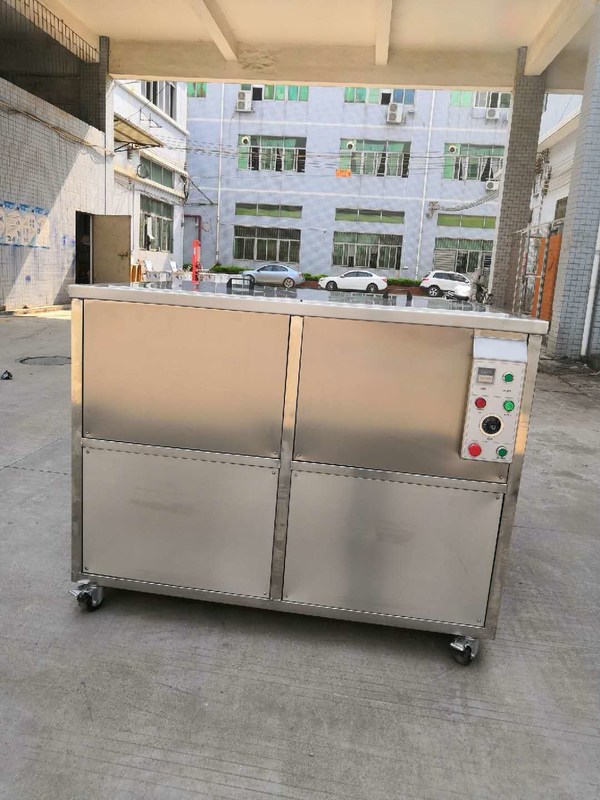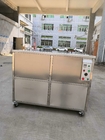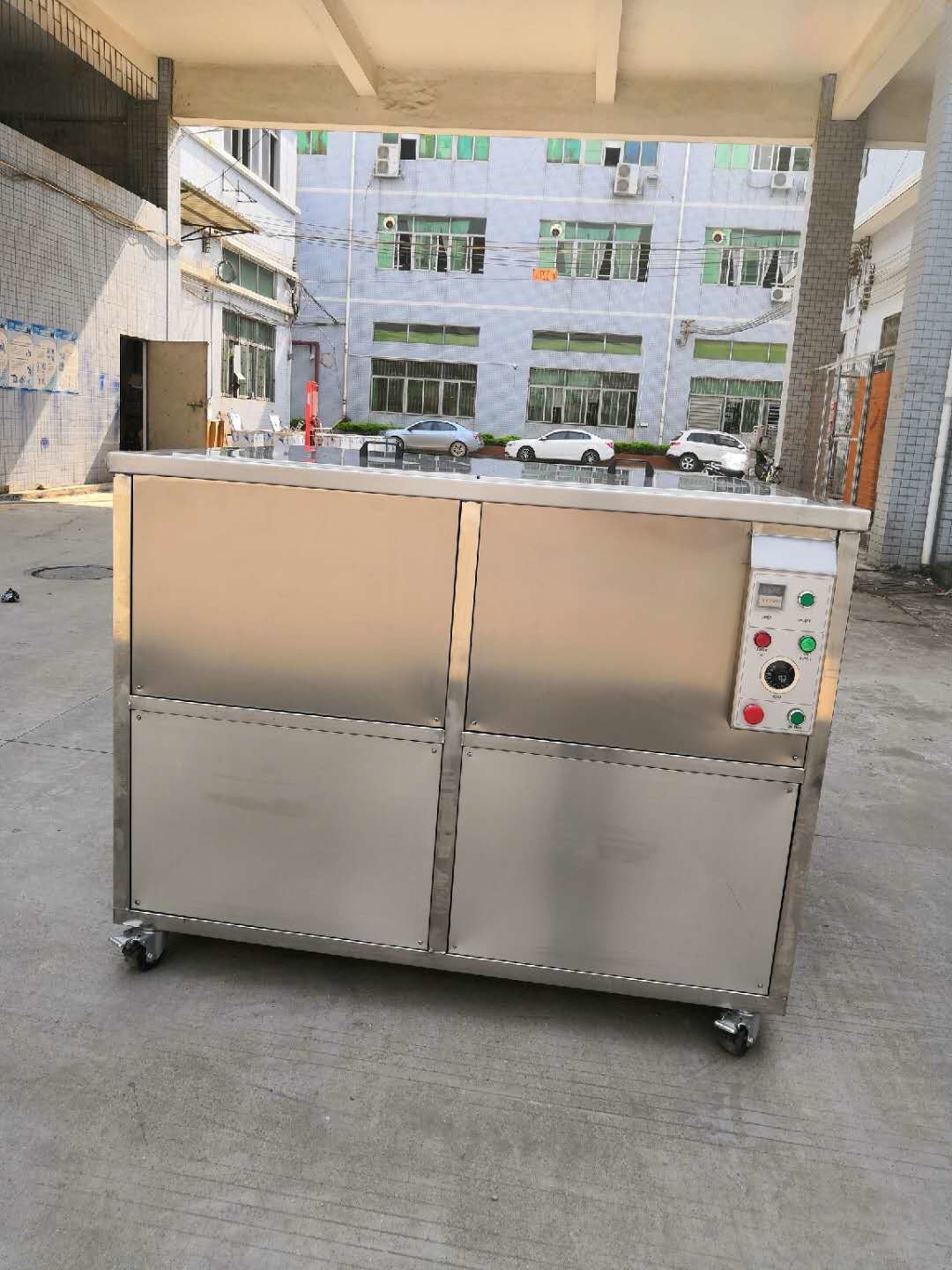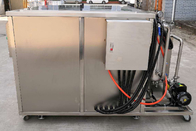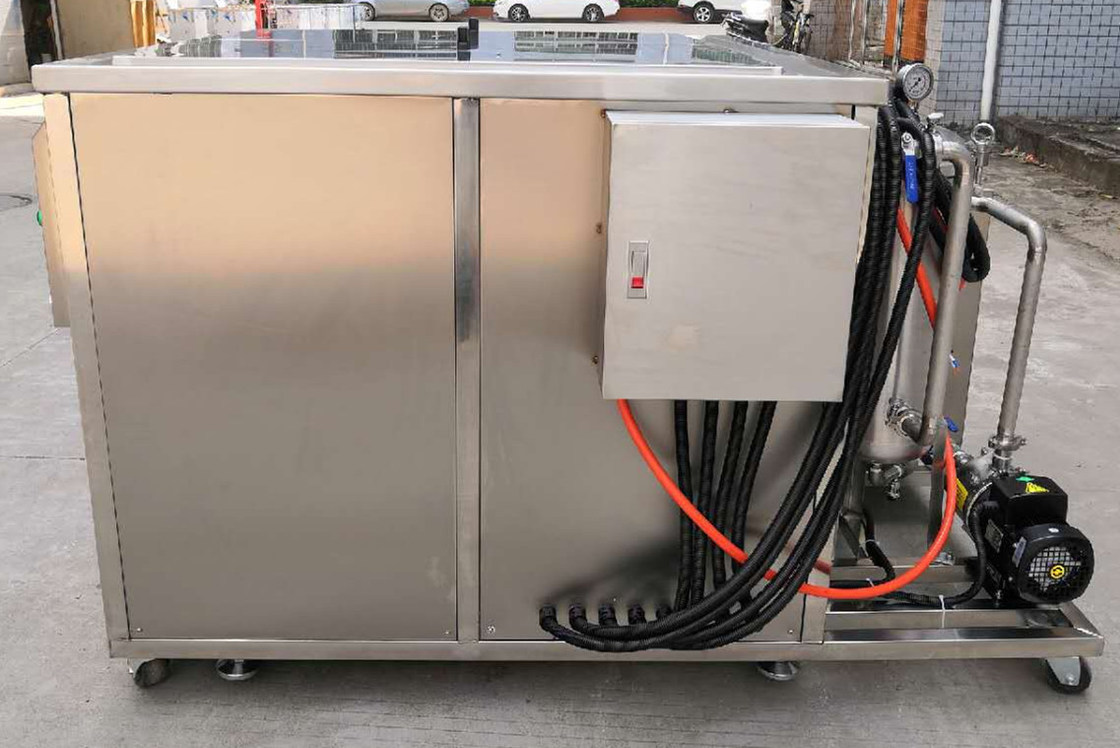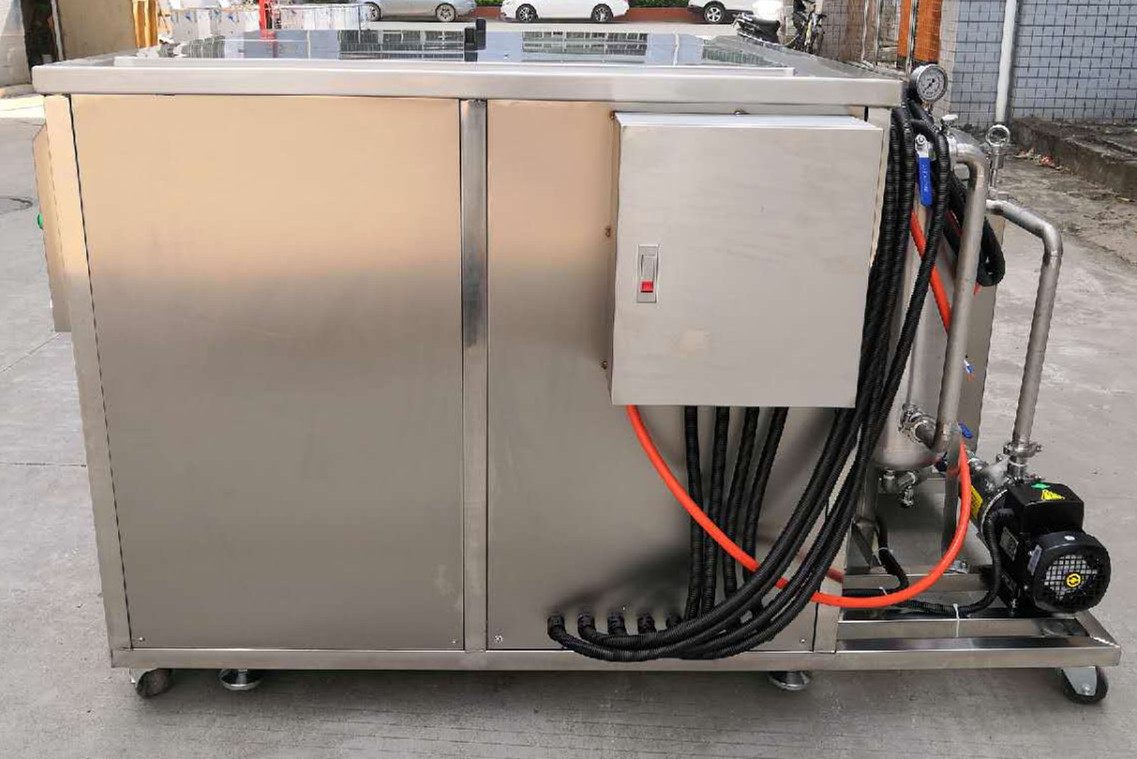Cylinder Heads And Engine Blocks Ultrasonic Cleaners
Automotive Ultrasonic Cleaners is primarily an aqueous tank systemthat uses ultrasonic energy to remove dirt, grease, oiland baked-on carbon from parts. Contaminants such aspaint, rust, glued-on gaskets, and heavy layers of bake don carbon can also be removed by ultrasonic cleaning but require more aggressive chemistries. Unlike someother cleaning processes, ultrasonic cleaning will notdamage intricate, lightweight, or easily damaged parts.
Ultrasonic cleaning and testing for better performance and greater efficiency
Introduction to Ultrasonic Cleaning
Other
• Jewellery
• Brass Clock parts
• Watches
• Musical Instruments
Electronics Industry:
• PC Boards
• Packing Components
• Capacitors
• Micro-Electronic parts
Automotive and Aerospace Industry:
• Switches
• Bearings
• Assemblies
• Metal and Plastic Parts
• Relays & Motors
Scientific Laboratories:
• Lab Glassware
• Tubes
• Pipettes
• Degassing liquid
Ultrasonic Cleaning is a highly effective precision cleaning process, which delivers a quick, safe, consistent and exceptional standard of cleaning.
The very nature of ultrasonic cleaning ensures it is a powerful force, which can clean both hard to reach areas such as blind holes and complex internals as well as remove ingrained surface contaminants such as paint or wax. Yet it is a cleaning method which is gentle on component parts, and is most suited to cleaning small, delicate and intricate parts that cannot stand the aggressive action of other cleaning methods such as spray washing.
The versatility of ultrasonic cleaning means it is used for a wide range of component parts throughout many different Industrie
What is ‘Ultrasonic’?
Ultrasonic cleaning technology is based on sound waves.
Any frequency of sound wave, which exceeds 18 kilohertz,is considered to be ultrasonic. Typically the frequency in an ultrasonic cleaning tank is between 20Khz and 80Khz. A sound wave is produced when a solitary or repeating displacement, is generated by a sound conducting medium,such as a vibratory movement. When high amplitude levels of sound waves are placed in liquid, a negative pressure is created. If continuous, this negative pressure will eventually build up to such a level that the liquid will fracture.
Ultrasonic Cleaning - FAQ
What is the foil test?
Ensure that the tank is at the required operating temperature, has been degassed, and filled with the correct amount of fluid and cleaning solution.Then, using a piece of aluminium foil,suspend the foil in the tank. Turn on the ultrasonics and leave for approx ten minutes.
Remove the foil and inspect. If cavitation is occurring the foil should be perforated and wrinkled. Try this in different places in the tank to ensure cavitation is all over.
Foil following cavitation
Why is fluid temperature important?
Heat not only aids the degassing process, but it also enhances and speeds up the actual cleaning process.Additionally most detergents are designed to work best at elevated temperature.
Which cleaning solution should I use?
Technowash ltd has a large range of aqueous based detergents specifically designed for use with ultrasonic cleaning. Please contact us for more details.
How often should I change the cleaning solution?
Cleaning solution should be changed if there is a noticeable difference in cleaning results, or when the solution is visibly dirty.
What is the recommended cycle time?
Process times vary depending on the application and the level of contaminant. All Technowash ltd machines are supplied with fully adjustable process cycle timers.



 Your message must be between 20-3,000 characters!
Your message must be between 20-3,000 characters! Please check your E-mail!
Please check your E-mail!  Your message must be between 20-3,000 characters!
Your message must be between 20-3,000 characters! Please check your E-mail!
Please check your E-mail! 
